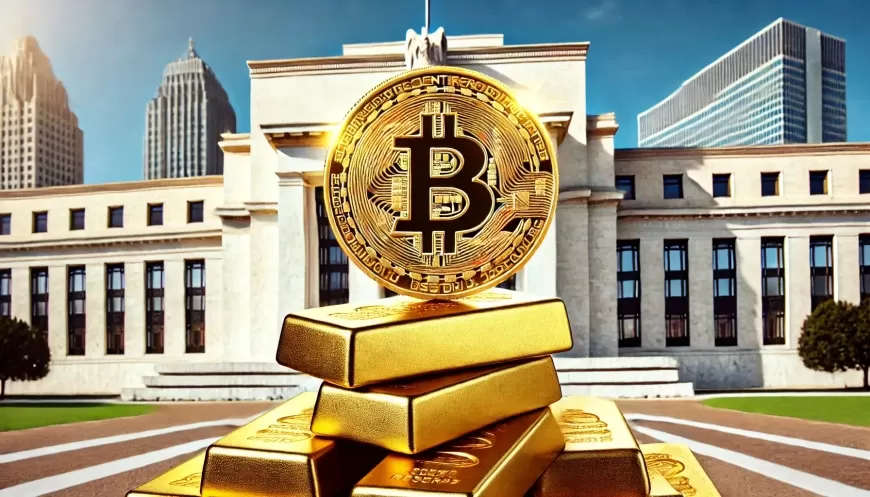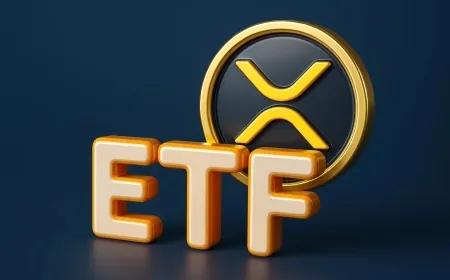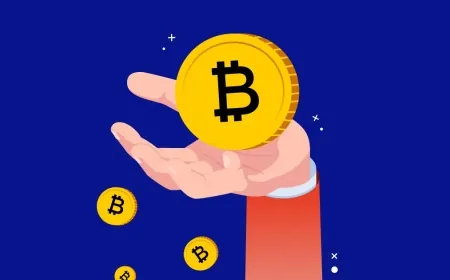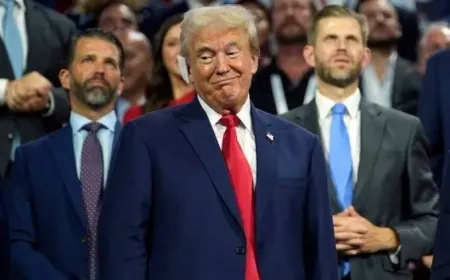U.S. Federal Reserve Could Hold Bitcoin: Debate Heats Up on Strategic Crypto Reserve
The U.S. might add Bitcoin to its federal reserve. Experts discuss the pros, cons, and implications of holding Bitcoin as a strategic asset in the evolving crypto market

As Bitcoin continues to grow in global importance, discussions around its role in national financial strategies are becoming more urgent. Governments worldwide are paying closer attention to cryptocurrencies, and some experts believe the U.S. could be on the verge of making Bitcoin a part of its federal reserve. The potential for the U.S. to hold a significant portion of Bitcoin in reserve is sparking heated debate among financial analysts, cryptocurrency experts, and government officials.
U.S. Government Considering Bitcoin Reserve Strategy
During a recent roundtable discussion, Ron Nelson, anchor of the debate, delved into the topic with prominent crypto experts Sam Price, host of Crypto Lifer, and Nick Hansen, CEO of Luxor. They examined the possibility of the U.S. government acquiring and holding 5% of the total global Bitcoin supply and whether such a move would be a beneficial strategy for the country or pose significant risks to the cryptocurrency market.
The conversation was spurred by the introduction of the proposed Bitcoin Act by Senator Cynthia Lummis. This bill advocates for the U.S. to adopt Bitcoin as part of its federal reserve, positioning the cryptocurrency alongside traditional assets like gold and foreign currency reserves. The proposal has received support from influential figures, including former President Donald Trump and Robert F. Kennedy Jr., who have both shown an interest in integrating Bitcoin into the U.S. financial system.
The idea of the U.S. government holding such a large stake in Bitcoin raises concerns. Nelson posed the critical question of whether the government’s control over 5% of Bitcoin could lead to potential market manipulation or price volatility. Such concerns are especially relevant in the context of Bitcoin’s decentralized nature, which has been one of its main selling points since its inception.
Transparency and Public Trust Are Key
Sam Price offered a balanced view, suggesting that while many may be wary of giving the government this much power over Bitcoin, it could also signal the evolution of how governments interact with emerging technologies. Price stressed that transparency would be crucial. He proposed that any governmental action involving Bitcoin must be visible to the public to ensure trust and accountability. This transparency would help prevent concerns that the government could use Bitcoin for manipulation or covert financial activities.
Price also noted that embracing Bitcoin could help the U.S. stay competitive on a global scale, especially as other countries begin to explore similar strategies. Nations like El Salvador and the Central African Republic have already adopted Bitcoin as legal tender, demonstrating a shift towards integrating cryptocurrencies into national economies. While the U.S. wouldn’t be taking the same legal approach, holding Bitcoin in reserves could be a step in acknowledging its growing influence.
Concerns Over Decentralization and Government Control
Nick Hansen shared Price’s call for transparency but remained skeptical about the government’s role in the cryptocurrency space. Hansen pointed out that Bitcoin’s core principle is decentralization—its value lies in the fact that it operates outside of government control. Labeling Bitcoin as "freedom money," Hansen warned that government ownership could undermine this key feature. He argued that while the U.S. holding Bitcoin could validate its importance as a global asset, it also poses a threat to the decentralized nature that makes Bitcoin unique. Hansen urged for vigilance in protecting Bitcoin from becoming just another tool of centralized government power.
Global Implications and Potential Benefits
The possibility of the U.S. government holding Bitcoin raises important questions about the future of cryptocurrency. If the U.S. were to include Bitcoin in its reserve, it could have far-reaching implications for the global financial system. Bitcoin is often seen as a hedge against inflation, a decentralized store of value, and an alternative to traditional currency systems. By holding Bitcoin, the U.S. could diversify its reserves and strengthen its position in the global economy, especially as digital currencies become more integrated into financial markets.
At the same time, government ownership of Bitcoin could lead to increased regulation, which could either stabilize or stifle the cryptocurrency market. The regulatory environment surrounding Bitcoin is still evolving, with the U.S. Securities and Exchange Commission (SEC) and other regulatory bodies continuing to explore how to best oversee the rapidly growing crypto space. The government's acquisition of Bitcoin could accelerate the push for clearer regulations, offering both opportunities and challenges for investors and the broader crypto community.
Bitcoin's Journey From Experiment to Strategic Asset
Ron Nelson concluded the discussion by reflecting on the rapid transformation of Bitcoin. What began as a niche project in 2009 has now grown into a global phenomenon, with the potential to become a strategic asset for world powers. Nelson highlighted that while Bitcoin’s potential as a reserve asset is clear, it also brings significant risks, particularly regarding government control and market dynamics.
For now, the idea of the U.S. government holding Bitcoin remains speculative. However, with growing interest from lawmakers, analysts, and industry leaders, it is a topic that will likely gain more traction in the coming years. As Bitcoin continues to mature, its role in national and global financial systems will be an essential area to watch.
Also Read: U.S. Crypto Users Bypass Airdrop Restrictions Despite Ban on U.S. Residents
































































